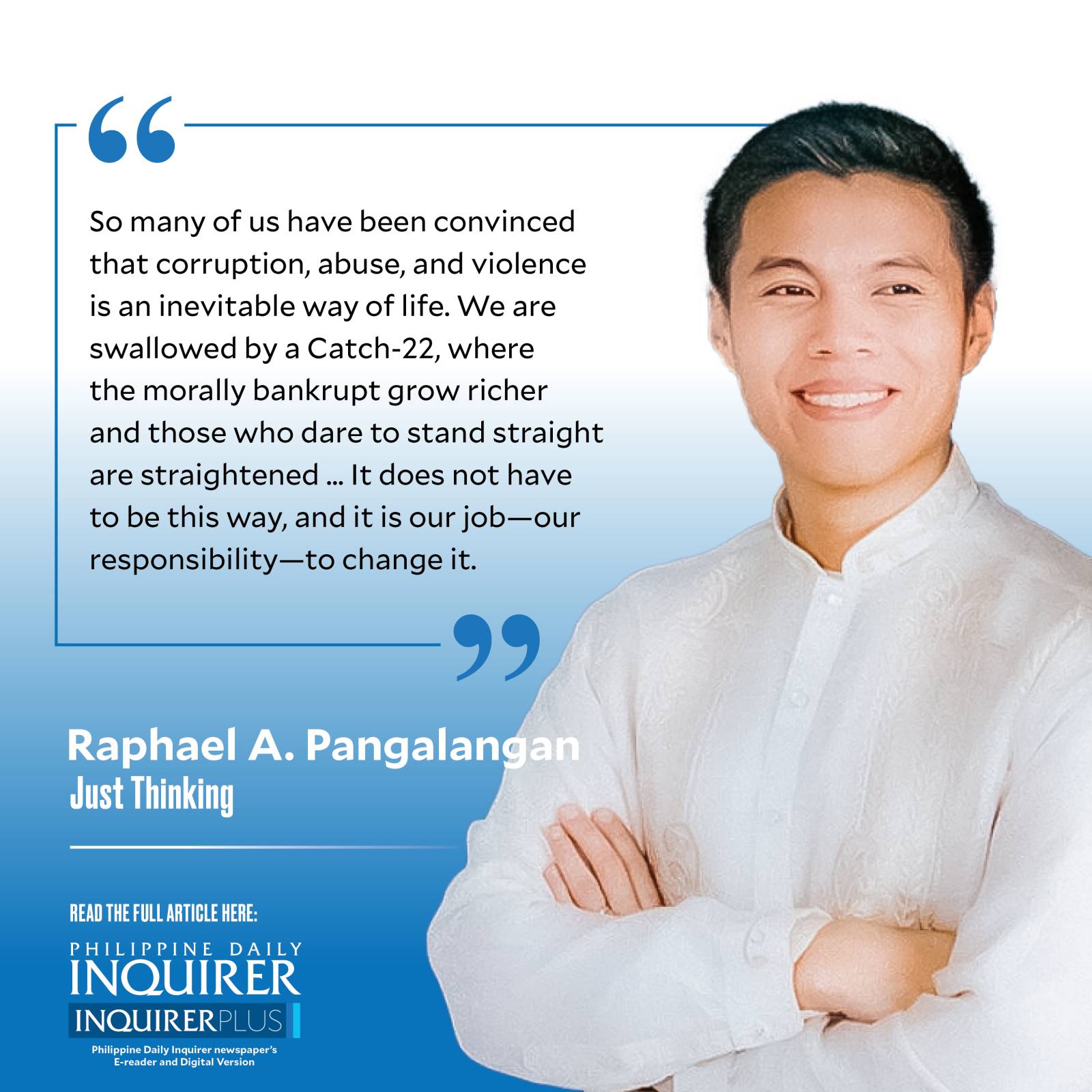
Please mind the gap between our promise and our practice.
Commuters of the London Underground are all too familiar with the security message: “If you see something that doesn’t look right, speak to staff or text the British Transport Police. We’ll sort it. See it, Say it, Sorted!” The call to action encourages the every man—you, me, and all on board—to report unusual items or activities.
“See it. Say it. Sorted.” Possibly the five most annoying words in Britain. Like it or loathe it, one thing’s for sure: It works. Since its launch, public reports to the police had increased by a whopping 365 percent.
The nationwide “See it. Say it. Sorted.” campaign, adopted by the British government, serves as a reminder of the crucial role the public can play in maintaining safety and order in society. It’s a message that resonates far beyond the confines of London’s underground tunnels and one that the Philippines desperately needs to heed.
In recent months, our newsfeeds and newspapers have been filled with disheartening stories of confidential funds and corruption, road rage, violence, and the abuse of power. Alas, the Philippine story is no fairytale. Our epics are made of evils. Our horrors are our heritage. Recent history is an account of moral failings and institutional shortcomings.
We all know too well that we can no longer rely on our government to work as it should. And in a world without pity, it is all too easy to grow indifferent. To let the cacophony of crime drown out the voices of justice and fairness. To tune out the old songs of corruption as the sound of broken records.
Yet among us, there are also those who envisage another world. One where people and country will lift itself above the fray. But where do we begin? What will be the catalyst for change? Who will be the mover of movers?
Will it be the government that leads that charge? Hah. You wish! Unfortunately, in a system rife with self-interest, it is the government and its members that constitute a big chunk of the problem. “Quis custodiet ipsos custodes?” is our favored Latin maxim.
Here, we have to watch our own watchmen with a magnifying glass. Indeed, “See it. Say it. Sorted.” cannot simply be transplanted from one kingdom to another. In the Philippines, it would read differently: “See it. Say it … And sort it out yourself!” But in either case, there is a message to be heard. And that message is this: peace, order, justice—these aren’t just matters of state craft. They can be crowdsourced, too! Championed and upheld by the collective will of the people.
Yet the powers-that-be have tried to convince us that we are powerless. We are not. Indeed, on Highway 54, we have twice shown that the social contract did not create the sovereign state. WE are the sovereign people. WE are the movers and shakers. On Edsa, we’ve illustrated with impassioned hearts and leveled minds that the power has always rested in our hands.
But that’s not what this system wants us to think. And indeed, many a time they have succeeded. So many of us have been convinced that corruption, abuse, and violence is an inevitable way of life. We are swallowed by a Catch-22, where the morally bankrupt grow richer and those who dare to stand straight are straightened. At this point in time, the traditional politician, sipping on their Blue Label scotch would simply break the fourth wall, look straight into the camera, and say: “Hey, if you can’t beat ’em, join ’em!”
It does not have to be this way, and it is our job—our responsibility—to change it.
Now the lot of us, with an air of practical wisdom, may very well dismiss these ideas as naïveté. Indeed some take pride in knowing that the world is broken. A special fee will try to fix it. Which category we place ourselves into is a decision for us to make, and us alone.
My choice has long been clear. What’s yours?
If only he who is without sin may cast the first stone, then this world would be one of apathy. That is a rule for religion, not governance—blurred as the lines may be. So, go! Break your solemn silence. Breed a culture of vigilance, and not violence. Blow your whistles on the misfeasance, malfeasance, and nonfeasance of our times. Call out your family, friends, and fellows you meet along the way to work for littering or breaking queue. Tell your elected officials and social networks of what is done wrong so it may be made right.
A better world is within sight, though it may not be within reach. At least not today. Not without effort. “See it. Say it. Sorted.” We must instill within the public consciousness a personal role in getting things right.
—————-
thinkjustly@gmail.com